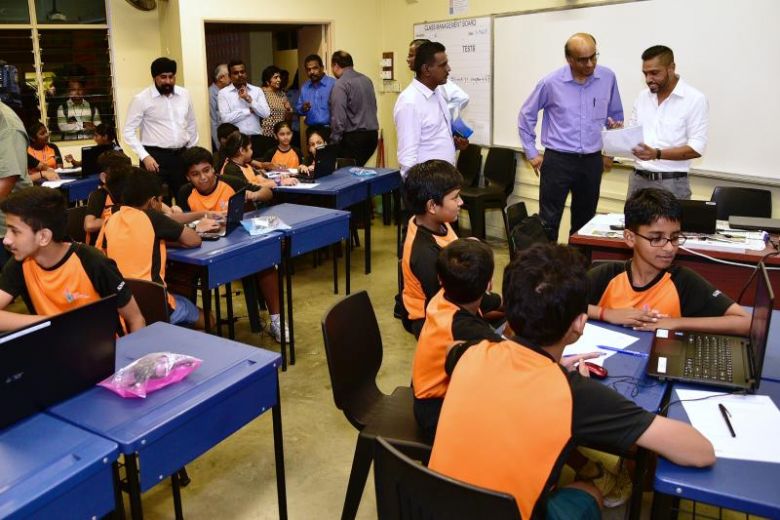On Friday 4 December Clare Short gave an online lecture, ‘Reflecting on the demise of DfID’ as part of the Cutting Edge Issues in Development Lecture series. Clare Short served as a Labour MP from 1983-2010 and in 1997 was appointed Secretary of State for International Development and oversaw the transformation of the previous Agency into the independent Department for International Development (DfID). Read what ID MSc students Emelie Johansson, Amy Shaw and Monika Jirotkova took away from the lecture below.
You can watch the guest lecture back on YouTube.

Reflecting on the future of UK aid, Clare Short, former Secretary of State for International Development from 1997 to 2003, delivered an insightful and engaging critique of the UK government’s decision to dismantle decades of effective aid policy in a global pandemic.
Short outlined some of the recent changes to aid. In July, the conservative government announced the merger of the Department for International Development (DfID) with the Foreign & Commonwealth office (FCO). The government also plans to reduce its aid budget to 0,5 % of gross national income and save around 4 billion pounds. Highlighting the diversity of DfID, Short then expressed dismay at the announcement that the FCO would only hire UK nationals and described the decision as contributing to a decline in development expertise.
According to Short, the development policy of the 1970s and 80s was driven by national and commercial interests rather than an authentic desire to reduce poverty. The major UN conferences of the 1980s and 90s led to a new turn for UK development policy and a shift from serving commercial and political interests to tackling poverty. With the creation of DfID in 1997, there was a structural effort to collaborate with foreign aid agencies, UN organs, and local governments to implement long-term development projects. With this major shift in mind, Short described DfID as a development department with a successful track record at reducing poverty. However, she is not opposed to reform: we are facing new challenges requiring innovative solutions. In Short’s opinion, it is worth reviewing how UK development policy can best tackle contemporary challenges such as the impact of climate change, the rise of poverty in fragile states, and the proliferation of violent conflict in many parts of the world.
Short believes that the new reforms are motivated by hostility to aid from the conservative government and right-wing media outlets, not a genuine aspiration to create effective development policies that can meet the challenges of today. Given estimations that the pandemic will throw around 88 million people into poverty, the aid cuts appear even more indefensible. Echoing comments by journalist Martin Wolf from The Financial Times, Short asserted that how a government acts in times of crisis reveals the character of that government; Short agrees with Wolf’s assertion that the government’s current actions can only be described as ‘a revealing case of ostentatious meanness’.
Short delivered an engaging presentation that touched upon timely and important issues. I agree with her conclusion that the merging of DfID and the FCO reflect a return to a development policy driven by security concerns and commercial interest above the needs of the world’s most vulnerable. As I listened to the talk, I reflected on how the pandemic has shone a light on the precarious nature of our current system. For instance, South-East Asia is expected to enter into its worst recession, with informal workers bearing the brunt of the impact. By next year, an estimated quarter of a billion are likely to suffer from acute hunger. These grim realities reflect a wider argument that Short highlighted in her presentation: good development matters. It matters not only as a framework for short-term alleviation of poverty, but to invest in a more equal world for everyone. With the demise of DfID and attempt to merge development policy with diplomatic and security concerns, there are indeed reasons to expect a decline in UK aid together with a continued rise in global poverty.
Emelie Johansson
_______________
“Aid is not just about dolloping money out to the poor, but allows people to take charge of their futures and have better prospects for their lives” is how Clare Short, former Secretary of State for International Development, described the importance of development and humanitarian aid when reflecting on the “ostentatious meanness” of the past five months of cuts, mergers and policy change affecting the Department for International Development.
Ms Short began her lecture, entitled ‘Reflections on the Demise of DfID’, by highlighting that the changes to UK international development and aid policy over the last five months are not the result of an evidence-based review, but in face the result of a long-standing foreign office hostility to DFID and from right wing Tories against aid.
On 16 June, Prime Minister Boris Johnson announced that DfID and the Foreign and Commonwealth Office (FCO) will merge, creating the newly formed Foreign, Commonwealth and Development Office (FCDO). Following this, development experts now working in the newly formed department are left in a precarious position, as roles in the new department are only open to UK nationals. In a final blow at the end of a challenging year for the development sector, the Chancellor of the Exchequer Rishi Sunak announced in November that the UK will temporarily reduce the percentage of GNI committed to overseas aid to 0.5%, which is an estimated cut of £5 billion compared to the 2019 budget.
Ms Short reflected on the creation of DfID in 1997 and her role as the first Secretary of State for the new department within Tony Blair’s government. Upon studying the various models employed by governments in relation to overseas aid, John Vereker, the first permanent secretary of DfID, argued that if overseas aid was to be taken seriously by the UK government, it must be managed within a standalone department. Otherwise, short-term political and commercial gain always overwhelm and diminish the quality of aid.
The rationale for the temporary cut to the aid budget is grounded in the impact of the Covid-19 pandemic on the UK economy. However, Ms Short argued that taking this money from the aid budget is unjustified as it will have monumental consequences for the world’s poorest, at a time when more people are being pushed into poverty due to Covid-19 and when the number of humanitarian crises is projected to increase year on year.
Students and staff had the opportunity to ask Ms Short what our role as aid campaigners, practitioners and development students is within this new era of UK aid. Ms Short encouraged us to think beyond only campaigning for the return of an independent department and 0.7% spent on overseas aid, but to advocate for what quality aid looks like to ensure the UK government can deliver aid which is principle-led and can reach those who need it most. Secondly, Ms Short reflected on the role of civil society, particularly local civil society in the Global South. She stressed the importance of decentralisation and the creation of real partnerships between local NGOs and INGOs where development strategies can be owned and led by local people.
While there is much cause for concern for the future of British aid principles and quantity, Ms Short provided a silver lining that DfID officials, whilst now working within a merged department, are passionate development advocates and will do all they can to fight for principles of aid effectiveness. Finally, while the changes over the past five months will have negative consequences for the world’s poorest, these changes do not have to be permanent; the cycle of government will continue, and policies can be changed in the future. I left the lecture feeling that not all hope is lost for an improved UK aid system which is bound by poverty-focused, aid effectiveness principles.
Amy Shaw
_______________
Clare Short’s thought-provoking reflection on the demise of DfID addressed the extraordinary time of upheaval in the UK and beyond. Clare introduced her lecture by presenting us with several significant announcements from the British government which happened during the last few weeks. Not only that DfID has been merged with FCO, but that the aid budget is to be cut by £4 billion and, lastly, foreign nationals will no longer be able to work in the UK development. As Short stressed, merging DfID with FCO is more of a take-over than a merge in itself.
Being a foreign student at LSE immersed in the multiculturism of the place and fruitful environment of many nationalities, it makes me uneasy to learn that the work for the UK’s international development will be only available to British nationals. As Short pointed out, if foreign nationals are not able to work for the newly merged FCDO, much expertise in the field will be lost. This expertise is sorely needed in a time when the world is facing many new complex challenges such as climate and ecological crises and the growing concentration of extreme poverty in fragile conflict-prone states. The last point is of particular concern, as Short highlighted, since both the British government and international systems do not produce satisfactory outcomes.
I feel the most pressing issue highlighted during the lecture was the announcement of the £4 billion cuts to the UK’s aid budget. Short reminds us that this period of the pandemic and great economic consequences for the poor of the world is not the time for cuts. According to the findings from the World Bank, the Covid-19 pandemic is estimated to push additional 8 m to 115m people into extreme poverty this year; people who might have finally managed to climb up towards economic security, will be pushed back on their knees. As Short emphasised, cutting aid at this time is a kick in the teeth, agreeing with Martin Wolf’s comment in The Financial Times that the cuts are “a revealing case of ostentatious meanness.” What comes as a shock is an announcement that in the time of cuts, the government is providing an extra £16,5 billion spending over the next four years for the defence budget.
Lastly, Short stressed that the demise of DfID is a result of incoherent policymaking, where changes were being made before the review of the department was reported. The Prime Minister provided worrying and incoherent reasons for the demise, such as the fact that DfID outspends the FCO four times over. As Short pointed out, this clearly showed the complete ignorance around UK aid, where the money ought to be spent to provide the poorest communities of the world with better living conditions. It is clear that the manifesto commitment of the Tory party has been violated by this decision.
Short concluded the lecture with the view that the quality of UK development efforts will inevitably deteriorate, and the commercial interest will be reinstated. On the brighter side, “the reality is there, and we have to argue for better outcomes, not the worst.”
Monika Jirotkova
This Friday’s guest lecture will be with Danny Quah, who will be joining us from Singapore to give a lecture on ‘Global Power Shift to Asia: Great Power Competition in the Marketplace for World Order’. LSE staff and students can sign up for the lecture here. External audiences can join the lecture via YouTube.
The views expressed in this post are those of the author and in no way reflect those of the International Development LSE blog or the London School of Economics and Political Science.






That’s very informative and useful information.